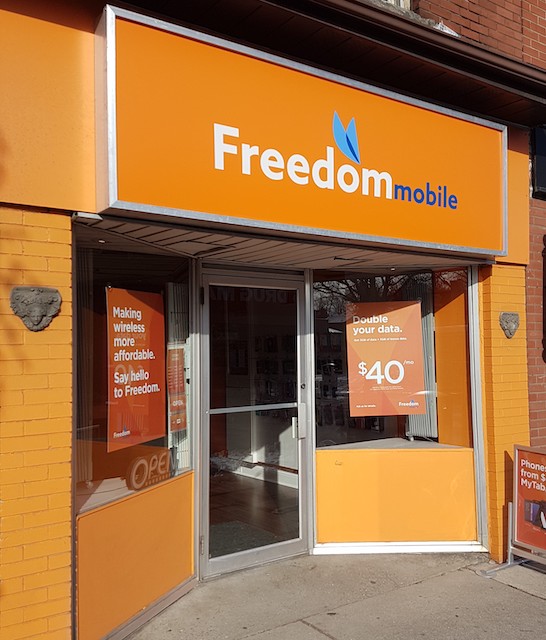
QUEBECOR PRESIDENT AND CEO Pierre Karl Péladeau released a statement yesterday criticizing an opinion piece published in the Globe and Mail last week, which itself criticized the pending merger of Rogers Communications and Shaw Communications generally and the sale of Freedom Mobile to Quebecor as a remedy for competition-related concerns about the merger specifically.
The opinion piece was written by Centre for International Governance Innovation fellow Keldon Bester (who co-founded the Canadian Anti-Monopoly Project) and Carleton University PhD candidate and consultant Ben Klass in the wake of the nationwide Rogers outage earlier this month.
Péladeau is calling three claims made in the article “inaccurate”.
The first claim is “Quebecor’s current pricing is objectively worse than Freedom’s.” Péladeau argues in his statement that this claim is based on consideration of packages with different coverage areas and data caps and as such is not based on an “apples to apples” comparison.
“It is important to note that Freedom Mobile’s plans include very limited roaming, compared to no restrictions for Videotron customers, and that Freedom customers have no access to 5G,” Péladeau’s statement says. “In fact, adjusting for the excessively high cost of an average national roaming package, Freedom’s plans are much more expensive than Quebecor’s,” he argues.
“Quebecor plans to offer consumers in British Columbia, Alberta and Ontario discounted multiservice bundles and innovative products, including both mobile and Internet, at even more competitive prices” – Pierre Karl Péladeau, Quebecor president and CEO
The second claim made by Bester and Klass that Péladeau argues is inaccurate is that Quebecor will not be able to attract customers in B.C., Alberta and Ontario with bundled discounts.
“Quebecor plans to offer consumers in British Columbia, Alberta and Ontario discounted multiservice bundles and innovative products, including both mobile and Internet, at even more competitive prices,” Péladeau writes. “We can bundle, and we will, on better terms than what anyone else, including Shaw Mobile, is offering today.”
Péladeau further indicates Quebecor is “even strongly considering offering telecom services in Manitoba, where Internet prices are amongst the highest in Canada,” and points to the example of Abitibi-Témiscamingue, Quebec, where Quebecor subsidiary Videotron offers service, as an example of the company’s market-disrupting abilities
“Videotron entered the market less than 2 years ago and has already taken a 34% wireline market share and slashed consumers’ bills by 35%, without owning its wireline network,” Péladeau says.
“We are firmly of the view that more competition is welcome across Canada’s communication markets. Our preference is simply to build upon actual, existing competition, rather than betting that the next best thing might come along to replace it” – Keldon Bester, CIGI fellow and Ben Klass, Carleton University PhD candidate and consultant
The third claim from the opinion piece Péladeau argues is inaccurate is customers in B.C., Alberta and Ontario will be worse off if Quebecor buys Freedom than if Shaw were to continue to operate it independently.
Here, Péladeau quotes a 2019 report from Klass and Carleton University professor Dwayne Winseck, which says: “If lower prices are an indication of the strength of regional competitors, then the data…lead us to conclude that competition from Freedom in Ontario and British Columbia…remains marginal…”
Péladeau argues this is “even more valid today”.
In a statement sent to Cartt.ca, Bester and Klass thank Péladeau for taking time to reply to their article. “We agree that he has every reason to be proud of his company’s accomplishments in the Quebec market,” the statement reads.
“However, our chief concern continues to be the harm to competition that would result from the proposed merger between Shaw and Rogers. While Mr. Peladeau’s ambition to expand his business into other parts of Canada is admirable, the fact is that Quebecor’s chances of success outside its home province are uncertain, and its expansion would face many substantial obstacles,” write Bester and Klass, who go on to argue if the merger is approved, Shaw will be lost as an “effective and dynamic competitor”.
“We are firmly of the view that more competition is welcome across Canada’s communication markets. Our preference is simply to build upon actual, existing competition, rather than betting that the next best thing might come along to replace it.”


